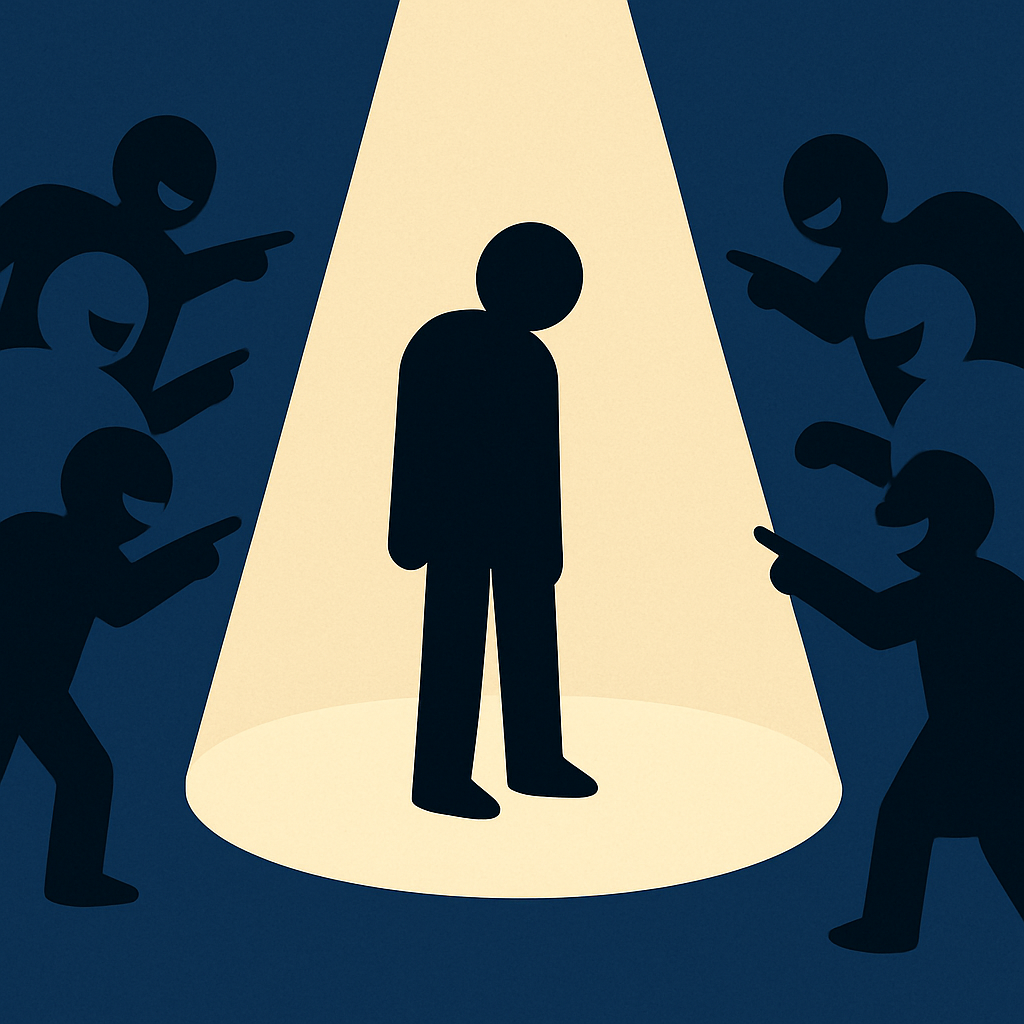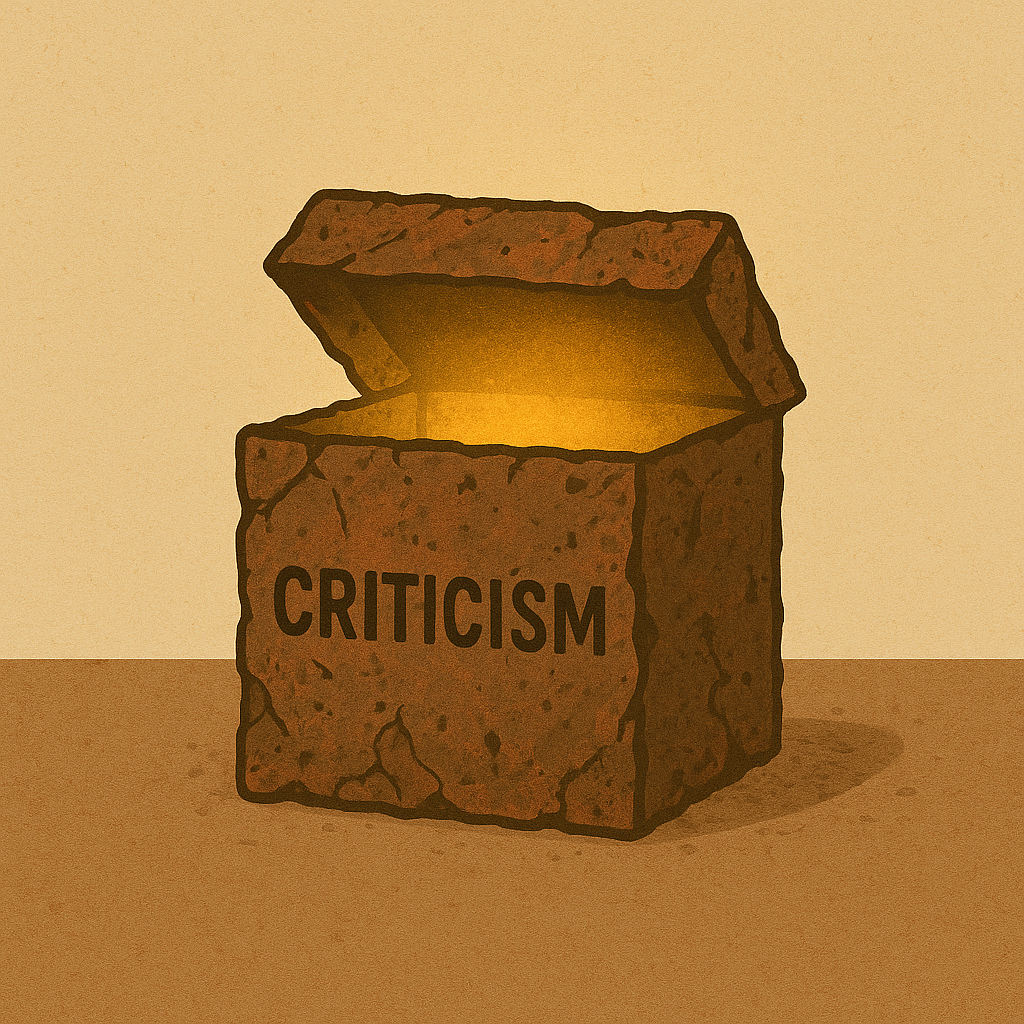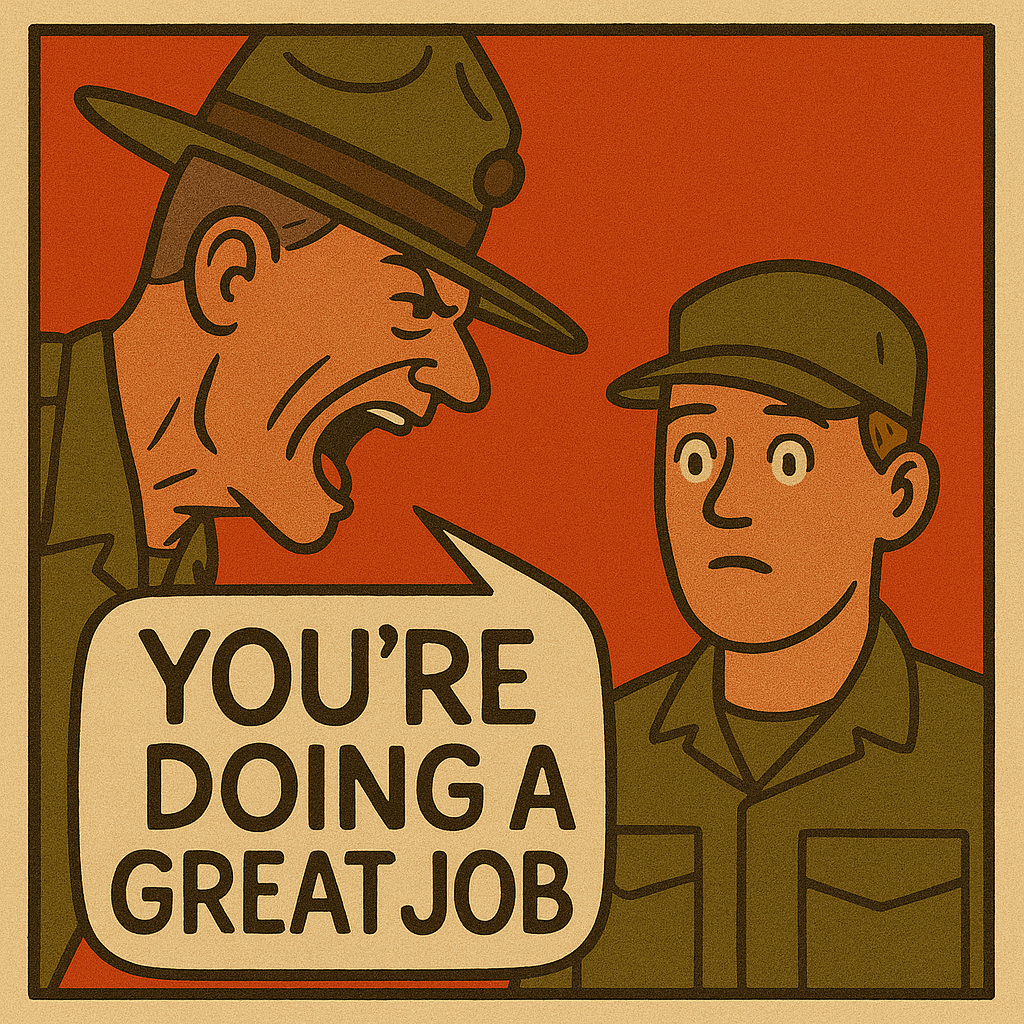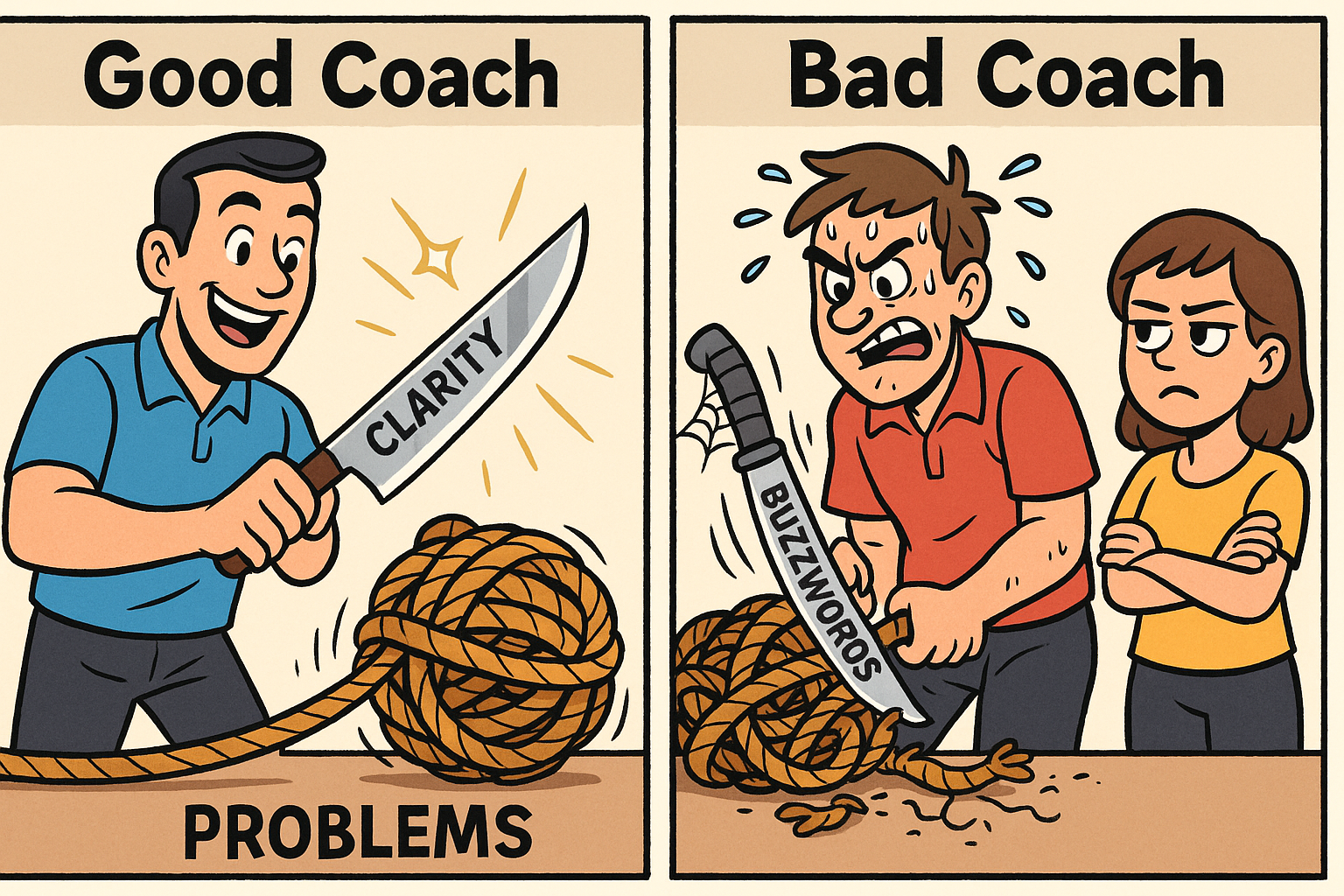Perfectionism is rooted in Relationships
Perfectionism, with all the pain it causes, doesn’t come from nowhere. It’s formed in your relationships and communities—by the fear of humiliation from parents and authorities, and the urge to fit into an environment where peers judge you by your performance.
Have you ever been belittled by an authority figure? Then you must know what that sinking feeling in your gut feels like, as you were exposed by someone who had more power over you than you liked to admit. In those moments, your mind is spiraling between self-blame and resentment— ‘Who are they to treat me this way? Did I do something to deserve this? Am I being too sensitive, or are they cruel?’ The uncertainty can be overwhelming, twisting your emotions into a knot as you replay the moment in your head over and over. This internal conflict can leave you stuck and unsure of whether to stand up for yourself or retreat in silence. So how do you tell whether you’re overreacting, or a genuine boundary has been violated? How do you navigate the murky waters of conflicting thoughts and emotions to find clarity? How do you know whether to say something?
Or maybe you’ve felt the pressure of competitive environments where meeting goals isn’t enough—you have to prove your worth as a person, too. You might find yourself constantly questioning whether you’re good enough, worried that others are secretly judging your every move. As you compare yourself to peers who seem to be excelling effortlessly, it’s easy to feel inadequate, like you’re always falling behind. The weight of growing expectations can be overwhelming, making you feel as though you’re only valuable when you achieve flawless results. With the pressure to avoid any mistakes, you start to doubt every decision, fearing that even a small slip-up will confirm your deepest insecurities. It becomes hard to see any progress as meaningful because you’re too busy battling the feeling that you’re never quite measuring up.
These authoritarian, high-pressure environments make you afraid to fail, because that’s tantamount to personally becoming a failure. For this reason, even small mistakes feel far too vulnerable to risk. While this can sometimes motivate you to perform at higher standards, it also holds you back from trying at all when there is a chance of making a mistake or not knowing the answer. This fear of judgement doesn’t only affect your performance though—it shapes how you see yourself and how you relate with other people, planting the seeds of self-criticism that can undermine your quality of life even today. While perfectionism seems to motivate you to perform at higher standards, it’s rooted in a fear-based mindset that is born and raised in communities and relationships, especially with people whose approval you want to secure.
We often talk about trauma in the context of parenting, but what about schools? What about corporations, religious institutions, the military and government, or any organizations where certain leaders shame, manipulate, or put their juniors down rather than lifting them up? I’m not saying there aren’t lots of good establishments or individuals out there. But over my years of counseling, I’ve talked with a lot of individuals who are still affected by experiences they had years ago — or even decades ago — where they were shamed for not getting “the right answer.” They still struggle with symptoms of perfectionism, like fear of failure, all-or-nothing thinking, procrastination, unrealistically comparing themselves to other people, and harsh self-criticism.
Navigating these challenges is even harder when mean-spirited individuals in question have power within the institution that you’re a part of. You might have to work within a culture of rigid ranking systems, constant comparison, and peer pressure that make you feel anxious to strive for impossible standards. Or maybe at home, you have a family member you love, but who can act like a condescending jerk sometimes. These are all tricky situations, especially when you need to interact — or even depend on such people for your education, spiritual journey, or career. You might find yourself stuck in a cycle of pressuring yourself to succeed while simultaneously holding back from opportunities, avoiding risks, or staying silent when you want to speak up, all because the fear of making a mistake feels unbearable. This limits your ability to perform, making you feel ashamed and hopeless. Therefore, in this article, let’s walk through some practical strategies for navigating this minefield, but without getting traumatized in the process. You will learn how to define success for yourself and avoid taking things personally. You will also learn how to set reasonable boundaries without risking your future by stepping on the toes of any self-righteous individual.
Why we second-guess ourselves so much
Perfectionism is something that’s installed in us early on to make us more controllable. Take this experience of John Taylor Gatto for example, a teacher from New York. On his first day, he was disappointed and shocked when another teacher gave him this advice: “Humiliation. That’s the only thing they fear. Shame them. Encourage other kids to shame them, too. And then they’ll listen.” Unfortunately, the teacher who recommended control-by-humiliation wasn’t wrong about its effectiveness in making people shut down out of fear. In fact, it’s so effective that it makes people internalize your rules and then censor themselves on your behalf, just to avoid the threat of humiliation. Cruel people understand this, and take advantage of vulnerabilities in human psychology for their own convenience or ego. They make you think you deserve to be humiliated, when they’re actually afraid themselves of losing control.
There are many ways an authority might manipulate you, but the most insidious one is shaming. They do this by giving you a rigid definition of your role and responsibilities, and then implying that your worth is tied to how perfectly you fulfill it. For example, you might hear something like:
“Good employees don’t take breaks”
“A real friend wouldn’t mind lending me money”
“Winners are willing to train even when they’re injured.”
These shaming tactics manipulate you into sacrificing your well-being or values, all under the guise of being more dedicated, loyal, or successful. But somehow, no matter how much you try to prove yourself, it’s never enough to satisfy the narcissistic authority figure who is taking advantage of you.
Sometimes without an authority intentionally shaming you, the pressure and judgement in an institution can aggravate your insecurities. For example, once I talked with someone who got a D in history class. She thought she was just bad at the subject. A few kids in the class said the teacher was boring and questioned why they had to memorize all these dates of different events. But she saw how they weren’t very good students themselves. Meanwhile, everyone else was studying hard and getting A’s and B’s. She assumed there was something wrong with her for not meeting expectations like them. Even if the teacher was cold and unencouraging, this girl still blamed herself for being different. She pushed herself to appear perfect from then on, believing this was the only way to protect herself from failure and rejection.
Years later, she discovered she actually could excel in History class when another teacher brought the subject to life, facilitating discussions about the significance of different events, and encouraging her and her classmates to reflect on how these events related to their own personal values. But it didn’t occur to her until she did therapy as an adult how she had been too hard on herself, and become overly anxious about perfection, when it was really just the combination of a boring teacher, a rigid grading system, and an insecure little girl.
Schools today more-or-less train people to be obedient employees who memorize what they’re told, and give all they’ve got just to prove themselves. This might benefit employers. But tragically, the cost is paid by traumatized people who years later, have a hard time thinking outside the box, or even knowing what they want. You might struggle with these symptoms and give yourself a hard time about it. But what if your inner critic originally comes from the oppressive voice of someone who is still haunting you—invisibly holding you back from deep inside your subconscious mind until you consciously let go of your fear of unreasonable judgements? Let’s explore now how you can overcome self-doubt and know where to draw the line.
How to know where to draw the line
Some situations are clearly inappropriate, but in others, it can be hard to tell where to draw the line. So, how do you know if someone has crossed a boundary, or if you’re just overreacting? The answer will be clear once you separate your emotional instincts and irrational ideas from the reality of the situation and develop clear and consistent standards. In this section, we will explore how to do that.
Consistent vs inconsistent standards: We need to develop consistent standards for how we judge situations, and not be more hard on ourselves than others. Many of us struggle to find our boundaries because we’re so used to being singled out that we assume it’s fair. You might tolerate someone treating you poorly because they’re so confident and entitled about doing so, it seems justified. But if you saw them treat a friend or child in the exact same way, you would likely have a different reaction. You might even say something to intervene. For example, imagine a child being treated the way you were treated while growing up. Would you still have the same feelings about it as you do about your own childhood? The discrepancy in our expectations reveals how we can be more compassionate toward others than ourselves, doubting that we deserve any better and minimizing the harm that we experience. To judge the situation more clearly, apply the same standards to yourself as you would to a friend. Ask yourself:
If this were happening to someone I care about, would I find it acceptable? How about my own son or daughter?
Would I feel confident explaining this situation to others as it was happening to this person I care about?
Exploitation vs. healthy challenge: In many institutions, you’ll find caring individuals who, despite their good intentions, may sometimes make mistakes or cause harm due to misguided actions. However, there are also authoritarian figures who consistently use their positions to belittle others, treating people like numbers or disposable commodities. In these high-pressure environments, it can be difficult to discern whether you’re facing a healthy challenge that pushes you to grow or whether you’re being exploited. In such environments, ask yourself:
When I cooperate with this pressure, is it helping me to build mental toughness while accomplishing something I believe in?
Does the pressure make me feel like my self-worth depends entirely on the results I deliver for the profit of other people?
Are these sacrifices worth the rewards I get, whether that’s pay, experience, or something else?
Is this line of work suitable for my nature, or would I be better off doing something else?
Peer pressure vs genuine values: When you feel the weight of peer pressure, it can be hard to have confidence in how you see things and remember what’s actually important to you. One study showed that people would actually change their answers to very easy math problems when they were surrounded by other people who all chose the wrong answer on purpose. Peer pressure can make you doubt your own perceptions, thinking, and feelings, especially if you’re afraid of being judged for standing out or speaking up. You might even to conform to what you imagine people think, when you don’t have the evidence to back it up. In such situations, ask yourself:
Do I want to become more like the people I’m following?
Am I agreeing with this behavior because I believe in it, or because everyone else seems to?
Would I still feel comfortable going along with this if I were alone, or if I had the support of many others to make a different choice?
These questions will help you separate your own values from the influence of the group.
Past vs. present: Painful events in the present moment can trigger emotional memories of the past, creating an emotional reaction that makes it hard to perceive the situation clearly. This can even happen on a subconscious level, making you react as if you’re still facing the same situation as long before, when the present circumstances are actually different. To separate the past from the present, ask yourself:
Do their actions remind me of someone who hurt me before?
Are they triggering old insecurities or fears?
When I only look at their actions in the present moment, do I still think they’re inappropriate?
Or is it a combination of both past trauma and wrongdoing in recent events?
At the end of the day, reasonable boundaries include any expectations that are necessary for a healthy relationship based on trust and respect. In such relationships, there’s no room for lingering resentments because issues are delt with honestly and respectfully. At the same time, boundaries are personal by nature and they all boil down to your honest feelings. The simplest way to know where to draw the line is to see how far you can compromise without feeling resentful afterwards. Resentment is internal feedback that you need to make changes to protect your boundaries.
Take Responsibility for Your own Well-Being
When you understand what treatment is acceptable, you’ll see there areas of your life and relationships where there are changes you need to make. The first step towards change is to develop a positive vision of what you’re working towards. Without a positive vision to pursue, you end up running away from the negative while looking towards the past, but not consider what you’re running towards. You might not be happy with where you end up. Therefore, as you prepare to make important changes in your life, first ask yourself:
What kind of relationships and interactions do I truly want?
What does a healthy, supportive dynamic look like to me?
What are the limits and boundaries I need to set to maintain that healthy dynamic?
While forming your vision, make sure to focus on what you do want. For example, if you tell your partner, “I want you to stop yelling at me!” they might sarcastically start whispering. When you focus on what you don’t want, you open the door for all sorts of other undesirable outcomes that you didn’t account for in your requests. You can easily get lost in reactive power struggles and hurtful counterattacks. But none of these things actually meet the wishes or needs that motivated you to enter the relationship in the first place! Slow down and reflect on what you do want in the relationship. Then, consider what steps need to be taken in order to move towards that positive, long-term vision.
It’s your responsibility to do whatever you need to do to realize this positive vision. But it usually won’t happen overnight. It will take time, and you need to prepare yourself for the journey ahead by considering the challenges you will need to face. When you’re entangled in an unhealthy relationship or situation, there’s always something you’re holding on to that keeps you from walking away. This doesn’t you should blame yourself for the way you’re treated, but recognizing how you might be tolerating more than you should because you’re attached to something you get in return. For example, we often get stuck in unhealthy dynamics with authority figures because they provide us with a sense of control or certainty. You might allow someone to lead you on an endless goose-chase to prove your loyalty because you’re attached to their approval. You might depend on them for good grades or other forms of official approval that can affect your future opportunities. You might rely on them for food or a place to stay.
Self-awareness is key in breaking these patterns. It takes some humility to acknowledge your mistakes, but it also empowers you to see relationships as something you can actively shape, rather than something that simply happens to you. To identify the areas where you can empower yourself by letting go, ask yourself:
What do I depend on this person or place for, or what do I at least hope and wait to get from them?
Am I accepting treatment or terms that I resent in exchange for these benefits, or the hopes of getting them?
Is it healthy for me to depend on them in these ways?
If not, am I ready and willing to let go of these hopes and benefits, and face uncertainty as I take responsibility for my own needs moving forward?
Over time, you may find yourself in a position of where you’re ready for more trust and interdependence, but it begins with letting go of the familiarity of unhealthy situations and embracing the uncertainty of self-reliance. By focusing on the positive vision of what you truly want, you can make decisions with confidence and know where you’re going. You can also take into consideration the choices you’ve made that don’t lead towards that vision. In the end, it’s about claiming the dignity you deserve and not accepting anything less.
Establish Boundaries
When you start taking charge of your life, especially around people who are very controlling, you might face criticism or judgment. These moments can lead to self-doubt and feelings of guilt or shame about your choices. After all, it’s understandable to doubt yourself when you’re met with rejection and rebuke by other people. But you’ve already reflected on the changes you want to make and why. So you know, at last theoretically, that you don’t want to submit under pressure anymore. You’re ready to face the discomfort of uncertainty, and even disapproval, as you make your own choices and life on your own terms. This kind of courage is essential to restore the balance of power in your relationships.
Now, it’s time to set boundaries with the other person. This can be challenging, especially if they invalidate your requests and blame you for making conflict. You might doubt yourself in response and feel tempted to apologize for your needs. For this reason, it’s important to understand what boundaries are, how they work, and to prepare for a potentially uncomfortable conversation.
Setting boundaries is not about making demands or controlling other people. It’s about delivering clear messages about what you will not accept, and then limiting other people’s access to you when they don’t cooperate. These boundaries protect both you, the relationship, and the other person, by establishing healthy and balanced expectations as the standard. It’s about cultivating a space for yourself and others to grow in mutual respect, trust, and safety. Think of boundaries as an entry fee that others need to pay for access to your time and energy—reasonable expectations that are necessary for a healthy relationship, protect your well-being, and prevent overextending yourself.
Of course, you might have to interact with toxic individuals sometimes because of your job, school, the government, etc. But when it comes to your free time and energy, it’s essential to set reasonable expectations of how people should treat you before you share these valuable assets with them. You might say something like, “You’re entitled to your own perspective, but I can’t help you any further unless you calm down and lower your voice. Would you like to take a couple minutes before we try having this conversation again?”
Discomfort is a natural part of setting boundaries, especially if it’s something new for you. All relationships have conflict sometimes, and just because it’s uncomfortable doesn’t mean that you’re doing anything wrong. Even if the other person doesn’t respond positively, it doesn’t necessarily mean you’re wrong or at fault, especially if their expectations are unreasonable or more than what you’re willing to accept. Trust your gut feelings rather than basing your decisions on how people react. In the end, embracing the discomfort of standing up for yourself is an act of self-respect. Your dignity and well-being are well worth the effort.
It can be helpful to prepare and practice. If you anticipate feeling nervous and overwhelmed, journal or talk with a friend to clarify the essence of what you need to say. Practice a calm tone and grounded body language while you deliver your message. Rather than overcomplicating your message by trying to address every possible objection, simplify your message by focusing on what’s important to convey. You don’t have to memorize an entire script, but get the essential points clear in your mind.
Be clear and direct. Avoid weakening your message with hesitant language like “kind of,” “maybe,” or “I guess.” For example, instead of saying, “I’m not sure, but I think I might have a pretty busy week, so maybe I won’t be able to take on any extra tasks, if that’s okay,” just say, “My schedule is full, so I won’t be able to take on any extra tasks this week.” Using clear and direct language communicates that you mean what you’re saying, and prevents the other person from becoming frustrated trying to figure out what you mean and whether it’s actually true.
There are practices you can use to stay calm and centered while having an uncomfortable conversation. To manage your feelings of nervousness or anxiety, take full, deep breaths. Bring awareness to the center of gravity in your pelvis, and feel it pull down towards the ground directly below you. Even as you move around and do things, keep your weight centered on the earth below you. Speak slowly, make eye contact rather than looking down, and clearly express your concerns and wishes. By staying in control of your emotions, it signals to the other person that you are secure in knowing your own perceptions, feelings, and needs.
Boundaries are part of an ongoing conversation, so it’s important to be firm and consistent about them. Don’t expect that setting boundaries will be a one-sided monologue to a silent listener who takes the information and makes all the changes you want. As you communicate about your boundaries, there will be a conversation back and forth. You can explain exactly what you mean. But as long as you’re being reasonable, you should never have to justify your boundaries. For example, you can explain what you mean when you say, “I’m not okay with last minute requests when you could have avoided the situation by being more proactive.” But you shouldn’t have to make arguments why you deserve to feel that way. It’s a personal choice what you’re willing to accept, especially in your free time.
When faced with invalidation or pushback about your boundaries, it’s important to remain steadfast about the convictions you’ve reached after careful reflection and conversations. Of course, if you realize your boundaries were based on a genuine misunderstanding, you can still make adjustments. But the adjustment should make sense. A person who simply bulldozes or disregards your boundaries is testing whether you will crumble under pressure. They might accuse you of being confrontational, and pressure you to give up your boundaries in the name of keeping the peace. But this is just manipulation. Calmly but firmly reiterate your boundary. If someone keeps pushing your limits, withdraw from the conversation until they’re ready to cooperate.
It’s wise to judge people’s character by their actions rather than their words. After clearly communicating your boundaries, observe the other person’s behavior over the following hours, days, weeks, and months. Consistent behavior matters more than one-time apologies. If their actions continue to violate your boundaries, even if they apologize, it might be time to reassess the relationship.
Even when you set boundaries, you can still keep the door open if things change later down the road. Maintaining your boundaries is not about rejecting others, but safeguarding your own emotional health. As long as someone hasn’t betrayed your trust by breaking important agreements, you can always keep the door open for the time when they’re ready to respect your wishes. Your situation might also change, allowing you to extend yourself more than before. Neither scenario means allowing them to knowingly and repeatedly violate your boundaries, but giving them a chance to earn back a place in your life by showing due consideration and respect. It’s totally up to you how many times you give someone another chance, trust your instincts and recognize when a behavior is becoming a harmful pattern. While there’s still some distance between you, be patient, focusing on protecting your own well-being, while allowing the other person time to adjust to the changes.
How to forgive
When it comes to processing your internal thoughts about mistreatment, compassion is a powerful force that can help you move on. Once you’re certain the way you’re being treated is inappropriate, you have two options for how to process the event—blame or compassion. If you blame yourself, you’ll fall into the trap of thinking you deserved it. On the other hand, blaming others can make you feel resentful, hateful, or desirous for revenge. You get trapped in the emotional turmoil of replaying past events in your mind because you’re waiting for an apology that might never come. But blame doesn’t resolve the situation or make anyone happy. So, let’s go with compassion.
As misled as they are, the tyrants who put you down believe their actions are justified. Most likely, they were treated the same way. And their criticism, control, and negativity stems from their own unresolved pain and insecurities. On the surface, it seems like they have an anger problem. But deep down, they really have a fear problem. They’re afraid of what would happen if they didn’t keep you under control. It might be abandonment, failure, humiliation, or something else they’re afraid of. But because they’re controlled by these fears, they speak in a way that’s calibrated to control. In other words, they don’t share their true feelings or perceptions. They say whatever they believe will keep them in power. So you can’t take their words at face value because a lot of the time, they don’t even believe them. They’re not actually monsters, but scared human beings unfairly taking it out on you.
Even if you can’t distance yourself completely, you can empower yourself by remembering that no one can make you feel inferior unless you believe what they say or take their actions personally. So don’t get stuck thinking you just need to perform better for them to treat you differently. If the way they treat you is truly inappropriate, then you shouldn’t have to earn the right not to be abused. Compassion doesn’t mean accepting mistreatment. It’s about imagining the deeper causes behind someone’s behavior and finding perspectives that pacify rather than upset you. As far as possible, practice this forgiveness and compassion while maintaining healthy boundaries. And when you do need to interact with toxic perfectionists, put things into perspective by reminding yourself that their attitude says more about them than it does about you.
Conclusion
I can remember a time in my early life when someone used humiliation to control me. Thankfully, my grandfather was there to save me from the situation and tell me it wasn’t my fault how I had been treated. Although so many of us have been in toxic environments, not everyone is given the perspective and tools they need to navigate it effectively. My hope is that this article will help you to navigate any such situation in your present life, and process traumatic events from your past, acknowledging that it wasn’t your fault how you were mistreated.
The key to applying everything you’ve learned here is to start small and build up gradually. At first, having your own value system and setting boundaries might feel uncomfortable. But just remember that you don’t have to make these changes all at once, and making mistakes is part of the learning process. In the meantime, as you work past the patterns that get in the way, be kind to yourself—these instincts aren’t voluntary, and you’re not alone in struggling with them. Each day offers a new opportunity to practice self-compassion and make healthier choices.
Over time, you will gain experience that prove you can do this, helping you to handle conflicts with greater skill and confidence each time. You’ll find that the habits of self-compassion, clear communication, and boundary-setting will become more familiar and natural. Every small step forward brings you closer to feeling more emotionally free and having a healthier relationship with both yourself and others. In the meantime, please just trust the process.































